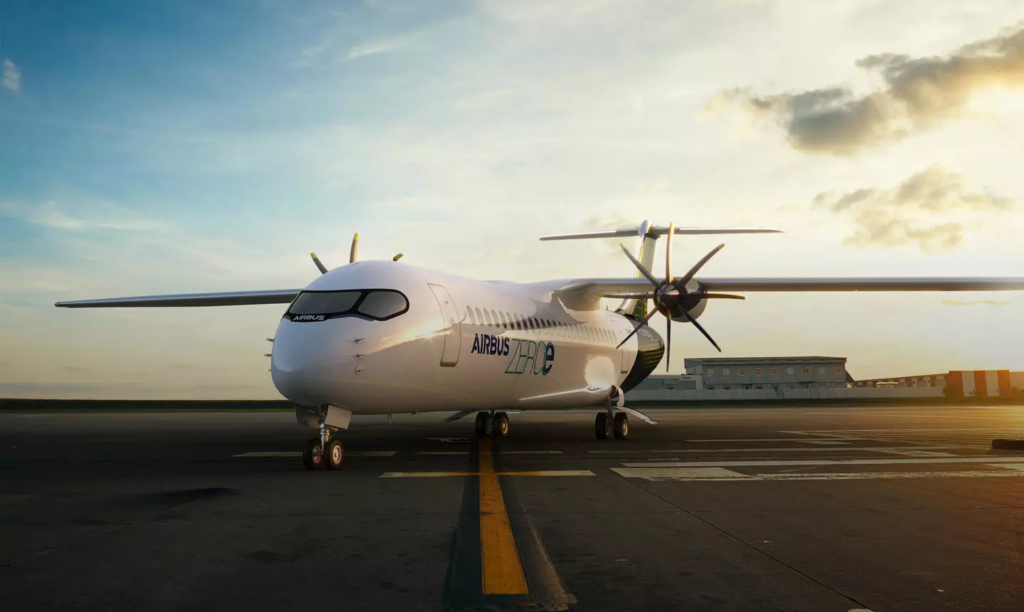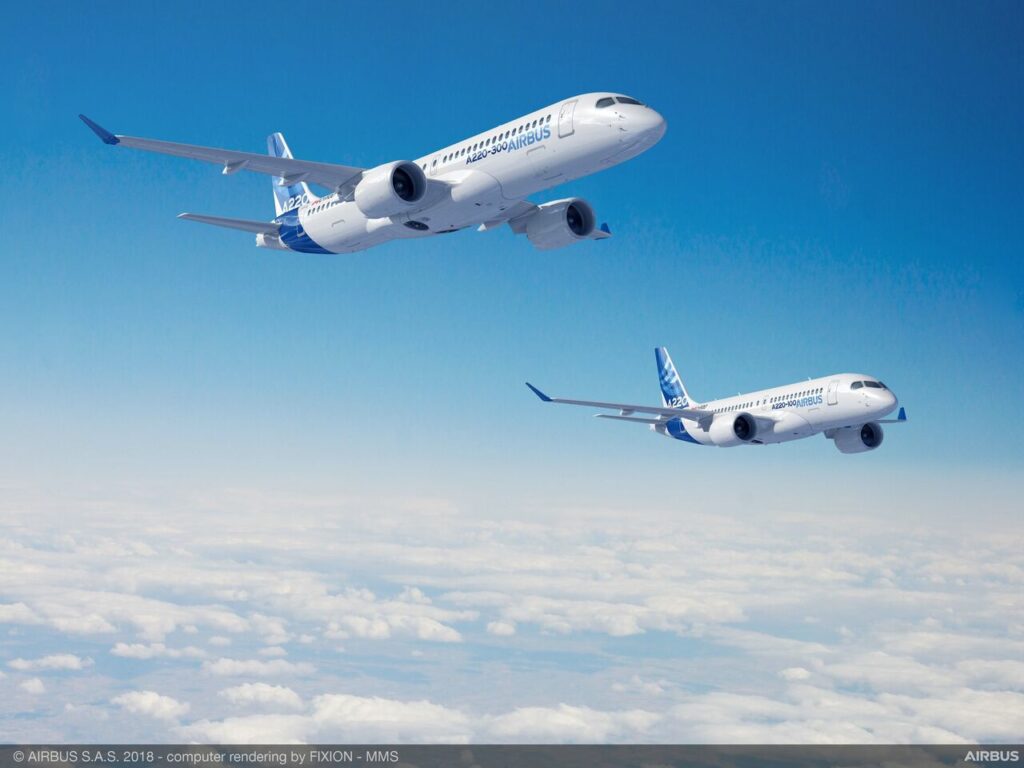Airbus Canada, Pratt & Whitney Canada and SAF+ Consortium have announced that they will be collaborating on developing Sustainable Aviation Fuels (SAF). The project will be known as CADAQ-100 and has seen major support from the Government of Quebec.
CADAQ-100
The focus of the collaboration will see the companies contribute to the industry wide effort to achieve net zero CO2 emissions by 2050.
This goal has been outlined by the Air Transport Action Group (ATAG) and the International Air Transport Association (IATA) as part of their decarbonisation roadmaps.
The project will focus on some key areas in order achieve their target. This will include SAF research and testing, which will further include testing up to a 100% SAF blend on Airbus A220.
These aircraft are powered by Pratt & Whitney PW1000G GTF engines, arguably one of the most fuel efficient engines flying today. It also shows part of P&W’s contribution within the collaboration.
Commenting on the collaboration, President and CEO of Airbus Canada, Benoit Schultz said: “Airbus alongside many of its customers, is fully committed to expanding the use of SAF, an essential pillar to support the aviation industry’s decarbonisation journey”.
He added, “Building this new Canadian ecosystem alongside the SAF+ Consortium is a key milestone and example of how Airbus is actively shaping decarbonisation discussions in Quebec and Canada.”
“It demonstrates our commitment to making SAF an economically viable solution available to our customers and partners globally.”
[monsterinsights_popular_posts_inline]
Significant project investment

In total, the amount of capital being set aside for the project will be CAD $17million, which is being supported by the Government of Quebec.
“Quebec’s aerospace industry stands out for its ability to innovate, particularly in the area of sustainable mobility,” said Pierre Fitzgibbon, Minister of the Economy, Innovation and Energy.
Through these mobilising projects, we are taking a step further toward making the aircraft of tomorrow a reality and thus reducing GHG emissions in Quebec and internationally,” he stated.
All in all the collaboration will look into the feasibility of developing a commercial e-SAF plant in Quebec, with a target to produce up to 100million litres of e-SAF by 2028.
“SAF represents a key drop in solution for reducing the environmental impact of thousands of aircraft flying today and in the coming decades and thereby enables the goal of net zero emissions by 2050” said Edward Hoskin, vice president of engineering, Pratt & Whitney Canada.
He also went on to say: “Collaboration between public and private sectors is critical to achieving our goals, so we welcome this opportunity and the continued support of the Government of Quebec to help expand SAF research and production capabilities in the region.”
To wrap up
Overall, it looks we have another set of companies pioneering their focus towards making aviation more sustainable in the decades to come.
Although each of the companies involved had their separates goals for reaching net zero and similarly ramping up the availability of SAFs, this collaboration shows a strong push and a step in the right direction to make such a reality feasible.









